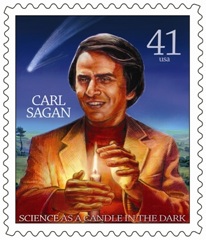 Life is what we make it, they say, so they made an Encyclopedia of it! The Encyclopedia of Life (eol.org) was launched today.
Life is what we make it, they say, so they made an Encyclopedia of it! The Encyclopedia of Life (eol.org) was launched today. It's inspiring, and yet saddening at the same time. It mentioned that some species might never make it there because of mass extinction, a result of the destruction to Mother Earth.
Also, in connection to Exoplanetology.com and this blog which I launched just a few days earlier, it gives me a "de-energizing" feeling whenever I am reminded of the thought:
"We haven't even fully catalogued all life on our own Planet, so why would we want to look for life on alien worlds ?"
Just by thinking of the variety of life on Earth, i already feel overwhelmed. Double that by the magnitude of the endeavor to find new exoplanets and life in them.
But despite it all, the Encyclopedia of Life still inspires me more.
It is a great start! Look, they named it as Encyclopedia of Life, hence it does not exclude life on other planets or exoplanets! So i am imagining the day when a new category will appear on its pages: Exoplanetary Life - Flora and Fauna from other Worlds!
It's a vision worth pursuing, therefore, onwards we must go with the science of exoplanets! Go exoplanetology!
Source: EOL.org goes online
Link: Encyclopedia of Life (eol.org)




